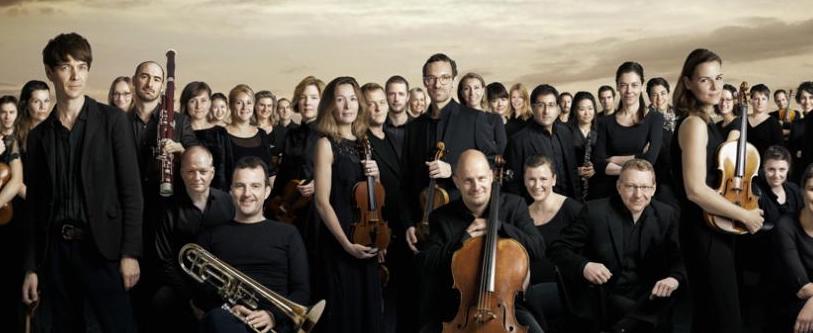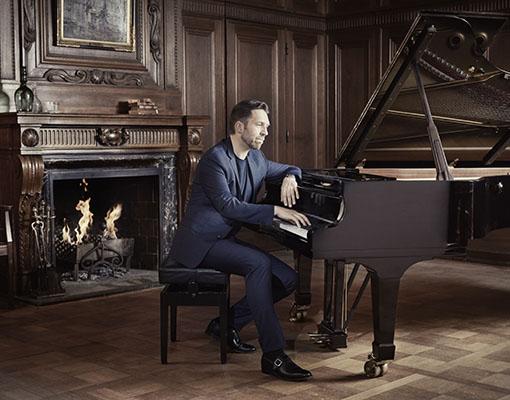Leif Ove Andsnes’s long-term partnership with the Mahler Chamber Orchestra has already yielded rich fruit, and the Mozart quartets and trio he performed last night with members of the top-notch nomad band proved just as succulent. However, I would hardly have been alone in leaving the Wigmore Hall with my strongest impressions stirred by the single solo work that the versatile Norwegian master-pianist allowed himself. All of the items of the bill dated from 1785 and 1786: the two piano quartets (in G minor and E flat) with which Mozart effectively launched the form as a serious vehicle for composers, and the B flat Trio which matches them in grace and weight.
Yet, just after the interval, Andsnes interrupted the mellifluous delights of these lovely, urbane conversations with the C minor Fantasia for piano, K475. There was an element of innovation in the mix here too, as complex solo pieces for fortepiano hardly abounded either in the Vienna of 1785. The austere but impassioned Fantasia, though, seems to usher in a bracing new dawn of its own. Andsnes transmitted those bleak opening octaves, those ominous diminished chords, that tense and troubled oscillation between keys, with a severity, even ferocity, that inevitably brought to mind the music of the next century – not just Beethoven sonatas but even Liszt at his most rhapsodic and chromatic.
Like the equally disruptive C minor Sonata K457 or the K546 Adagio and Fugue, this feels like the music of the future glimpsed by a prophet with dark visions to impart. Andsnes, though, knows that this work needs Classical restraint more than proto-Romantic grandstanding. He channelled all its low-voiced solemnity with a brooding, rock-tough authority. In the suspenseful pauses, he understood the power of silence too.
 In contrast, the piano quartets and trio offered a ravishing and debonair to-and-fro between accomplished equals, even if the piano parts do hog more of Mozart’s limelight. Indeed, in a movement such as the highly-wrought Allegro that begins the first quartet, the sound-world suggests a cut-down concerto, with Andsnes’s piano ranging far and wide over the trickily entwined themes as the three other players became a sort of mini-string orchestra. However, Matthew Truscott (violin), Joel Hunter (viola) and Frank-Michael Guthmann (cello) from the MCO [pictured at full strength above] were none of them there to play second fiddle. They answered Andsnes’s cool, clear and emphatic voice on the piano with a tautness, drive and eloquence of their own. To my ears, though, the first quartet felt a little too plain-spoken, with Andsnes’s clarity of articulation seldom matched by the wistful lyricism that the scoring – especially in the gorgeous Andante – seems to demand. This was Mozart seen in hard-edged Nordic light without any concessions to soft-focus sentimentalism. But that lucidity paid handsome dividends as Andsnes and friends teased out the intricately knitted tunes of the scintillating rondo that finishes the piece.
In contrast, the piano quartets and trio offered a ravishing and debonair to-and-fro between accomplished equals, even if the piano parts do hog more of Mozart’s limelight. Indeed, in a movement such as the highly-wrought Allegro that begins the first quartet, the sound-world suggests a cut-down concerto, with Andsnes’s piano ranging far and wide over the trickily entwined themes as the three other players became a sort of mini-string orchestra. However, Matthew Truscott (violin), Joel Hunter (viola) and Frank-Michael Guthmann (cello) from the MCO [pictured at full strength above] were none of them there to play second fiddle. They answered Andsnes’s cool, clear and emphatic voice on the piano with a tautness, drive and eloquence of their own. To my ears, though, the first quartet felt a little too plain-spoken, with Andsnes’s clarity of articulation seldom matched by the wistful lyricism that the scoring – especially in the gorgeous Andante – seems to demand. This was Mozart seen in hard-edged Nordic light without any concessions to soft-focus sentimentalism. But that lucidity paid handsome dividends as Andsnes and friends teased out the intricately knitted tunes of the scintillating rondo that finishes the piece.
For the B flat Trio, coeval in its creation with the "Prague" Symphony, Hunter’s viola withdrew for the others to showcase a three-way conversation as smart as it was sweet. Truscott’s solo contributions shone amid the intimate badinage of the Allegro, while in the Larghetto Andsnes began to access an expressive range of colour – especially in the bass – that enriched its tenderness. In the final Allegretto, another rondo, the piano and strings took us dancing down a silver river with a new lightness and cantabile grace.
After the fierce and harsh interlude of the C minor Fantasia, the second quartet capped the evening with a masterclass in ensemble work that sounded admirably tight and close, yet mellow and relaxed at once. Here, Andsnes seemed to unwind, finding an expansive, magisterial ease in the theme-packed Allegro, a movement also distinguished by the lyric warmth of Joel Hunter’s viola. This sensuous, sometimes melancholy Larghetto drew a wider dynamic range from the group, and a more flexible approach to volume and tempi carried over into the piano-led drama of the finale. Andsnes now managed to supplement the rather formal, even stiff, elegance of the first quartet with a more unbuttoned charm, and the result was loose-limbed delight. For an encore, the four amigos played another work from 1785: the slow movement of the piano quartet in C major by the 15-year-old Beethoven. Once more (and this time with Truscott’s sumptuously-coloured violin to the fore) we heard the sounds of the future hatching out from the stately past.













Add comment